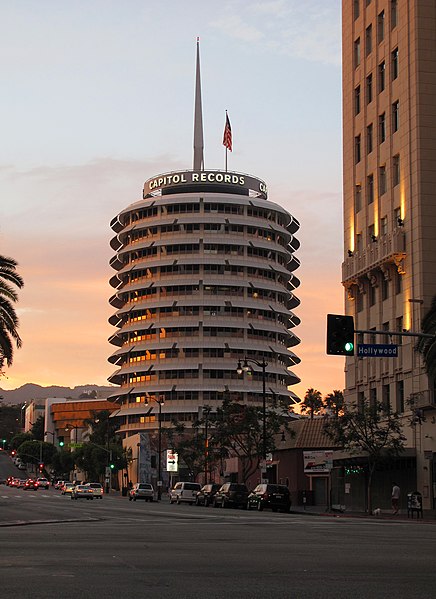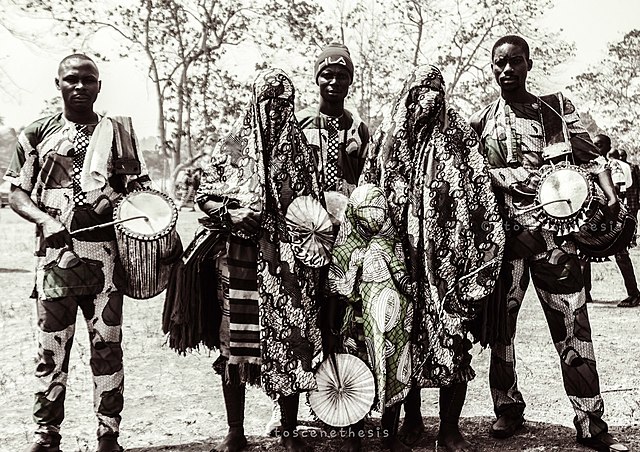Music of the United States
The United States' multi-ethnic population is reflected through a diverse array of styles of music. It is a mixture of music influenced by the music of Europe, Indigenous peoples, West Africa, Latin America, Middle East, North Africa, amongst many other places. The country's most internationally renowned genres are traditional pop, jazz, blues, country, bluegrass, rock, rock and roll, R&B, pop, hip-hop/rap, soul, funk, religious, disco, house, techno, ragtime, doo-wop, folk, americana, boogaloo, tejano, surf, and salsa, amongst many others. American music is heard around the world. Since the beginning of the 20th century, some forms of American popular music have gained a near global audience.
Raymond Carlos Nakai is an American Indian of Navajo/Ute heritage. His Earth Spirit and Canyon Trilogy albums are the only Native American albums to be certified gold and platinum, respectively, by the RIAA.
The entrance of the Grammy Museum at L.A. Live
Capitol Records headquarters building
Singer Elvis Presley was one of the most successful music artists of the 20th century, he is often referred to as "the King of Rock and Roll", or simply, "the King".
The music of West Africa has a significant history, and its varied sounds reflect the wide range of influences from the area's regions and historical periods.
Yoruba musicians
Afrobeat drummer Tony Allen in 2015
A traditional djembe drum.
A balafon








